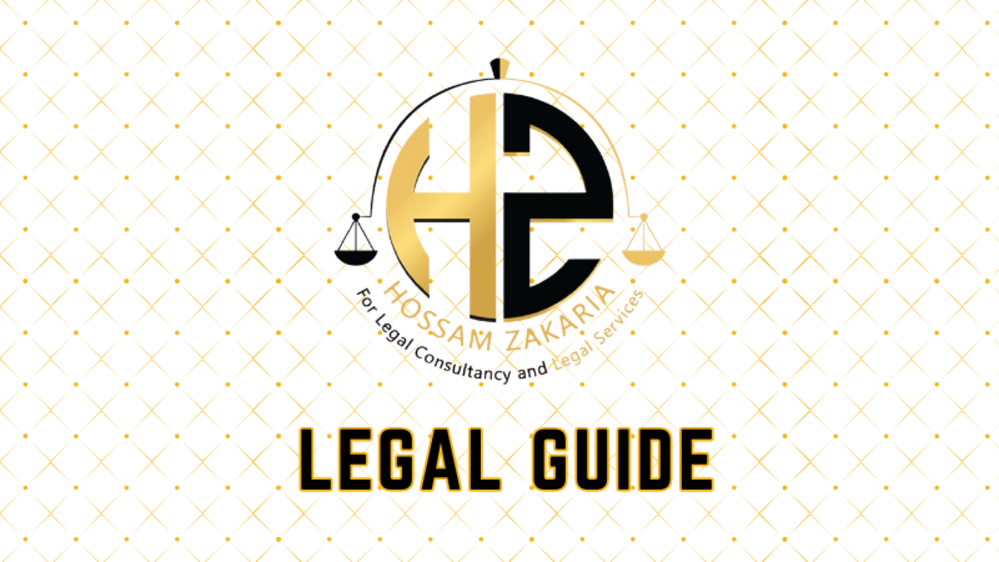Introduction: The Strategic Significance of Mainland Company Registration and Law Compliance in the UAE
The United Arab Emirates (UAE) continues to distinguish itself as a premier global destination for business and investment. As economic reforms accelerate, there has been a corresponding shift in regulatory frameworks impacting business formation and governance—particularly in relation to the registration and regulation of mainland companies. With the introduction of several federal decrees, updated Cabinet resolutions, and ongoing modernization of company law, a comprehensive understanding of the legal landscape is essential for businesses, executives, and legal professionals seeking market resilience and compliance.
In light of the UAE’s visionary goals for economic diversification under the UAE Vision 2030, and recent amendments such as Federal Decree-Law No. 32 of 2021 (the “Commercial Companies Law”), the formation and operation of mainland companies demands close attention to legal developments. This article offers an in-depth consultancy guide, combining authoritative legal analysis with actionable compliance recommendations. The focus is on practical business structuring, comparative frameworks between historic and current law, and risk mitigation within the UAE’s dynamic regulatory environment. Both new investors and established businesses will find relevant insights to ensure sustained legal compliance and business growth.
Table of Contents
- Overview of Mainland Company Law in the UAE
- Key Legal Requirements for Mainland Company Registration
- Comparison: Previous vs. Current UAE Mainland Company Laws
- The Mainland Company Registration Process: Step-by-Step Guide
- Ownership and Capital Requirements Under UAE Law
- Compliance Obligations and Corporate Governance
- Risks of Non-Compliance and Penalty Overview
- Case Studies: Navigating Practical Legal Challenges
- Strategic Recommendations for Proactive Legal Compliance
- Conclusion: Future Outlook and Best Practices
Overview of Mainland Company Law in the UAE
The Legislative Framework
Mainland companies in the UAE are governed primarily by Federal Decree-Law No. 32 of 2021 on Commercial Companies (replacing Federal Law No. 2 of 2015), alongside relevant Cabinet Resolutions and sector-specific regulations. This law applies to all commercial entities established onshore, as opposed to businesses located in free zones. The legislative climate is further underpinned by Cabinet Resolution No. 58 of 2020 on the Regulation of Ultimate Beneficial Owner Procedures, and procedures from relevant departments such as the Department of Economic Development (DED).
Key authorities involved include the UAE Ministry of Justice, UAE Ministry of Economy, and each emirate’s DED, ensuring regulatory oversight, business licensing, and compliance monitoring.
Why Mainland? Comparative Business Advantages
Mainland companies enjoy expansive commercial freedom across the UAE, are not restricted by geographic or sector limitations (unlike free zone entities), and have access to both government and private sector contracts. Recent legal reforms allow for enhanced foreign shareholding, offering investors unparalleled control and market flexibility.
Key Legal Requirements for Mainland Company Registration
Legal Entity Types and Applicability
The UAE Commercial Companies Law recognizes several types of mainland entities, most notably:
- Limited Liability Company (LLC): The most prevalent structure, recommended for most commercial activities.
- Public Joint Stock Company (PJSC) and Private Joint Stock Company (PrJSC): Suitable for larger enterprises and those seeking capital market access.
- Branches and Representative Offices: For foreign corporations wishing to establish a physical presence without full incorporation.
Practical Insight: Selection of entity type directly impacts ownership, capital, compliance, and reporting duties. Decisions should reflect both the commercial needs and sector-specific legal obligations.
Core Legal Steps
| Step | Description | Relevant Authority |
|---|---|---|
| Trade Name Reservation | Choose a unique trade name; subject to approval by DED | DED |
| Initial Approval | Obtain initial consent on proposed activities and structure | DED/Other Ministries |
| Memorandum of Association (MOA) | Draft and notarize the MOA (and, if LLC, Articles of Association) | Notary Public, DED |
| Office Lease Registration | Secure and register a physical office space (Ejari in Dubai) | Real Estate Regulatory Agency/DED |
| Capital Deposit (if required) | Deposit minimum capital (for specific entity types/activities) | Bank |
| Licensing | Secure business license covering permitted activities | DED, Regulatory Ministries |
| UAE National Service Agent Appointment (if required) | Assign service agent for branches or representative offices | DED |
Suggestion for Visual: A flowchart illustrating these registration steps enhances clarity for prospective entrepreneurs.
Comparison: Previous vs. Current UAE Mainland Company Laws
The UAE’s legal framework for company formation has evolved significantly, with the most notable shift being greater allowances for foreign ownership and corporate governance reform. Below is a comparative table synthesizing these differences:
| Feature | Pre-2021 Law (Federal Law No. 2 of 2015) |
Current Law (Decree-Law No. 32 of 2021) |
|---|---|---|
| Foreign Ownership | Max 49% foreign shareholding (mandatory 51% UAE national) | Up to 100% foreign ownership permitted (subject to activity list) |
| Minimum Capital (LLC) | Subject to DED determination, often AED 300,000+ | No minimum capital unless specified by DED/Ministry |
| Local Service Agent | Required for branch/rep office of foreign company | Still required, but scope and obligations clarified |
| Shareholder Governance | Less flexibility in shareholder agreements and decision-making | Enhanced flexibility in MOA, quorum, and shareholder rights |
| Beneficial Ownership Disclosure | Limited, not explicitly regulated | Mandatory under Cabinet Resolution No. 58 of 2020 |
| Corporate Governance | Limited requirements for non-public companies | Expanded governance obligations, Board and reporting standards |
Practical Impact: These reforms create opportunities for international investors but demand enhanced compliance—from documentation to disclosures.
The Mainland Company Registration Process: Step-by-Step Guide
A Legal Roadmap with Practical Commentary
- Business Activity Selection: Review permitted activities under the official DED list; some industries require additional ministry approvals.
- Trade Name Reservation: Names must comply with moral, legal, and public order requirements; names similar to existing entities are prohibited.
- Initial Approval Application: Obtain initial consent from the DED. Regulated sectors must secure NOCs from authorities such as the Central Bank (for financial firms) or Ministry of Health (for healthcare).
- Document Submission and MOA Drafting: Prepare, notarize, and submit the Memorandum and Articles of Association. For LLCs, ensure MOA reflects agreed shareholding and profit arrangements—now customizable post-2021.
- Lease and Ejari Registration: Secure a commercial address. Lease agreements must be in the company name; virtual offices may only be accepted in certain cases.
- Capital Deposit and Bank Certification: For certain sectors, the required capital must be deposited and certified by a local bank before final license approval.
- Final License Issuance: Licensing authorities issue the trade license after all preconditions and compliance procedures are fulfilled.
- Post-Incorporation Compliance: Registration with the Federal Tax Authority (FTA) for VAT (if applicable), registration with the Ministry of Human Resources & Emiratisation (MOHRE) for employee hiring, and maintenance of Ultimate Beneficial Owner (UBO) records as per Cabinet Resolution No. 58 of 2020.
Consultancy Insight: Legal review at each stage is recommended to avoid administrative delays, especially for regulated industries or companies with complex shareholding structures.
Ownership and Capital Requirements Under UAE Law
Foreign Ownership: Key Developments for 2025 and Beyond
The removal of the historic 51% UAE national ownership requirement for many mainland LLCs is one of the UAE’s most impactful reforms. Pursuant to Federal Decree-Law No. 26 of 2020 (amending the previous Companies Law) and its embedment in Decree-Law No. 32 of 2021, many activities now allow for up to 100% foreign shareholding—subject to DED’s published list of strategic “negative activities” still requiring local participation.
| Ownership Model | Permitted for Which Activities? | Approval Required? |
|---|---|---|
| 100% Foreign Ownership | Activities outside the strategic sectors; list published by DED/Ministry of Economy | DED confirmation |
| 51% UAE National, 49% Foreign | Strategic sectors (e.g., oil and gas, utilities, security); as specified by DED | DED, Supreme Council approvals |
Note: Even with 100% foreign ownership, the presence of a UAE national as a local service agent may still be required for branches or representative offices.
Capital Requirements and Banking Considerations
Under current law, minimum capital requirements for LLCs have been abolished except in specific sectors (e.g., banking, insurance). However, sufficient capital must be available for intended business activities and reflected in the MOA.
For banking and finance companies, higher capital requirements apply under Central Bank and Securities & Commodities Authority (SCA) regulations.
Consultancy Recommendation: Confirm capital sufficiency with commercial banks early in the process to avoid licensing or account opening delays.
Compliance Obligations and Corporate Governance
Ultimate Beneficial Ownership (UBO) Disclosure Under Cabinet Resolution No. 58 of 2020
As part of UAE’s drive to prevent money laundering and enhance corporate transparency, all mainland entities must comply with mandatory UBO requirements:
- Maintain updated registers of actual (ultimate) beneficial owners (individuals with 25%+ ownership/control or those with effective management influence).
- Submit UBO details to authorities (usually DED or Ministry of Economy) at formation and when changes occur.
- Comply with enhanced information verification, record keeping, and reporting obligations.
Legal Risk: Violations attract administrative fines ranging from AED 50,000 to AED 100,000 and may result in business license suspension or criminal liability under Federal Law No. 20 of 2018 on Anti-Money Laundering.
General Corporate Governance Duties
Federal Decree-Law No. 32 of 2021 has introduced measures to strengthen the management of mainland companies, particularly for LLCs and joint stock companies:
- Clarity on powers and duties of directors/managers/voting rights
- Requirements for regular general meetings and documentation of resolutions
- Mandatory maintenance of accounting records (minimum five years as per Article 26, VAT Law)
- Timely tax registrations and permit renewals with FTA and DED
Robust corporate governance is essential not only for compliance but also for attracting investment and minimizing shareholder conflicts.
Compliance Checklist: Suggested Visual Table
| Compliance Area | Key Requirement | Frequency/Deadline |
|---|---|---|
| UBO Register | Updated and filed with DED | On formation/change within 15 days |
| Annual Reporting | Financial statements submission (where required) | Yearly |
| VAT Registration | Register with FTA if revenue exceeds AED 375,000 | Within 30 days of threshold |
| Trade License Renewal | License periodic renewal | Annually |
| Labour Law Compliance | MOHRE employee registration/payroll | Ongoing |
Risks of Non-Compliance and Penalty Overview
Modern UAE laws are clear: failure to comply with company, tax, UBO, or governance requirements triggers substantial administrative and financial risks. Authorities such as the Ministry of Economy and DED have stepped up monitoring, regularly conducting spot checks and audits.
Common Non-Compliance Risks
- Failure to update/shareholder or beneficial owner information
- Late or inaccurate VAT/tax filings
- Operating without valid license or undertaking banned activities
- Non-compliance with labour and Emiratisation requirements
Penalties: Chart for Quick Reference
| Violation | Relevant Law | Penalty Range |
|---|---|---|
| Failure to file UBO register/update | Cabinet Resolution No. 58/2020 | AED 50,000 – AED 100,000 |
| Operating without valid trade license | Commercial Companies Law/Dubai Law No. 13/2011 | License suspension, fines AED 10,000 – AED 50,000 |
| Late VAT registration/filing | Federal Decree-Law No. 8/2017 on VAT | Up to AED 20,000 per violation |
| Breach of labour law | Federal Decree-Law No. 33/2021 | Fines, employment bans |
Consultancy Insight:
Proactive compliance reviews, internal audits, and company secretary support are recommended to identify liabilities early, especially given the UAE authorities’ movement towards digital reporting and cross-agency data sharing.
Case Studies: Navigating Practical Legal Challenges
Case Study 1: Foreign Ownership Transition in a Professional Services Firm
Scenario: A UK-based consulting firm wishes to convert their Dubai LLC from 49% to 100% foreign ownership, now permitted under Decree-Law No. 32 of 2021.
Legal Steps:
- Review eligibility against DED-published ‘Strategic Activity List’
- Amend and notarize new MOA reflecting shareholding changes
- File for shareholder change with DED, update UBO register
- Notify bank, FTA, and any industry regulators of ownership amendment
Takeaway: Early legal review and timely authority notifications are critical; transition delays may impact contracts or banking operations.
Case Study 2: Non-Compliance Penalty for UBO Disclosure Lapses
Scenario: A mainland trading company is fined AED 50,000 for failing to submit an updated UBO register after a share transfer.
Resolution Strategy: Immediate rectification, request for penalty reduction (justifying the delay), and implementation of internal compliance systems to track future changes.
Insight: UBO compliance is not a one-off obligation; constant monitoring and periodic reviews are mandatory.
Strategic Recommendations for Proactive Legal Compliance
- Engage Professional Advisors: Utilize licensed legal consultants to oversee incorporation, regulatory filings, and structural changes.
- Implement Internal Controls: Automate compliance checkpoints for deadlines (e.g., UBO, license renewal, VAT filings).
- Educate Key Stakeholders: Maintain awareness among directors and HR regarding their governance roles and changing legal obligations.
- Conduct Annual Legal Health Checks: Periodic compliance audits reveal gaps before authorities intervene.
- Stay Updated on Legislative Changes: Regularly monitor UAE Ministry of Justice and DED announcements for relevant updates.
Conclusion: Future Outlook and Best Practices
As the UAE sharpens its focus on economic diversification, transparent corporate practices, and digital governance, the compliance environment for mainland companies has never been more dynamic or demanding. Reforms in foreign ownership, beneficial ownership transparency, and corporate governance have contributed to an investment-friendly but regulation-intensive business landscape.
The essential takeaways for businesses seeking success in the UAE mainland are:
- Adopt a proactive and systematic approach to legal compliance, rather than reacting to regulatory interventions
- Embrace best-practice governance models (including board procedures, accurate record keeping, and stakeholder communication)
- Monitor evolving legislation, particularly as the UAE government continues to align with global standards on anti-money laundering, tax transparency, and investor protection
Looking to the future, expertise in UAE legal compliance is a strategic asset. For organizations aiming for growth, cross-border expansion, or regulatory resilience, close partnership with an experienced legal consultancy is imperative. Our firm can provide guidance from initial setup through every phase of operations—ensuring not only that you meet your legal obligations but that your business is positioned for long-term, compliant success in the evolving UAE landscape.



